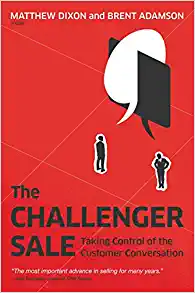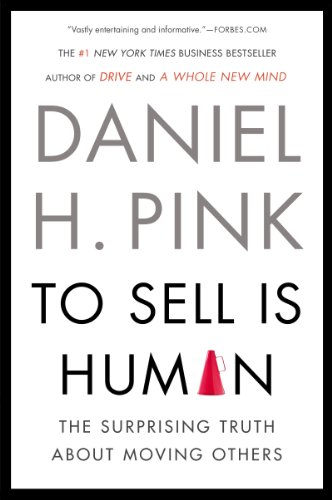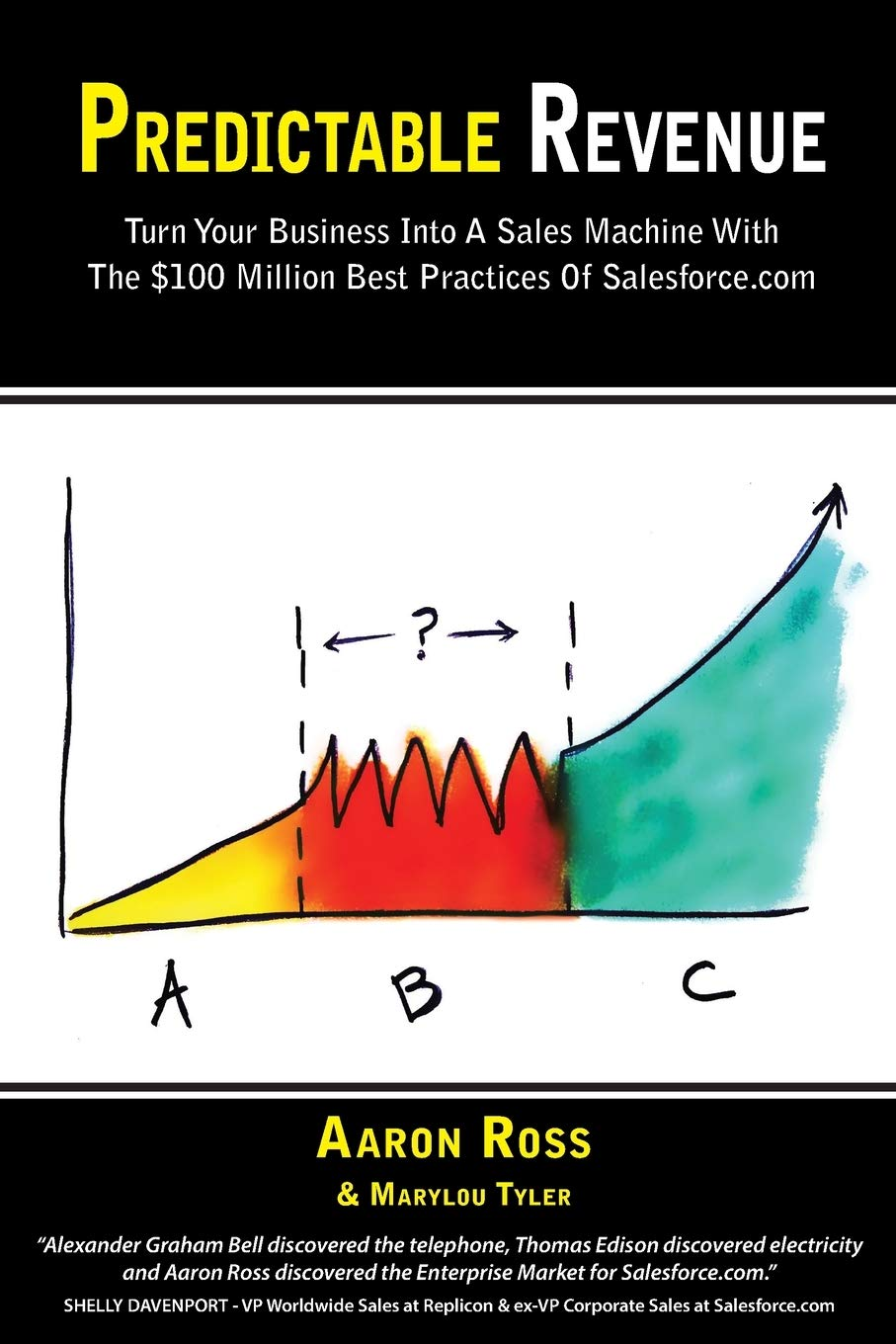If you are thinking about getting into software sales or trying to improve your already active tech sales skills, books are your friends. Here are some of the best software sales books that can help you take your career to the next level by introducing you to new prospecting techniques, sales methodologies, unique perspectives, psychological tactics, and more.
The Challenger Sale & The Challenger Customer by Matthew Dixon
“The Challenger Sale” and “The Challenger Customer” can be read separately, but we recommend reading them in tandem, for they both promote the same philosophy: that building relationships with your B2B customers is the least effective sales method, and that, instead, you should prioritize challenging your prospects to think differently about their problems, business, and industry.
In the Challenger Sale, instead of acquiescing to every objection and throwing pleasing features at the prospects, reps using the method are assertive, ask difficult questions and pushback on any of their prospects’ flawed conceptions of reality.
The Challenger Customer explains how a big problem for many B2B companies is that the buyers cannot reach a consensus among the many decision-makers at the organization on the purchase decision. That’s because what they are buying is change — often at a large scale — and that can be hard to swallow. So, the book outlines how to equip your customers with the right insights and tools to help sell your solution internally, essentially becoming challenger sellers themselves.
These two books outline what steps to take to nudge your prospects into that new mindset that will make them more likely to see the effectiveness of the solution you offer.
Best For: Whether you are in an upper sales management position or just starting out, this is a great book to help you learn about a sales methodology that works for selling B2B SaaS products and that adds a little intensity and ferociousness to your sales game. “The Challenger Customer” is specifically geared towards sellers who face multiple decision-makers.
To Sell is Human by Daniel Pink
“To Sell Is Human” offers a unique look at the art and science of selling. Daniel Pink draws on social science studies for his somewhat counterintuitive sales advice, such as the fact that extroverts don’t always make better salespeople than introverts. Through this book, you will learn a lot about how to change someone’s mind.
In it, he lays out the six alternatives to the elevator pitch, three rules for understanding a prospect’s perspective, and five frames that can make your sales messaging more persuasive.
Exemplary Quote: “The purpose of a pitch isn’t necessarily to move others immediately to adopt your idea. The purpose is to offer something so compelling that it begins a conversation, brings the other person in as a participant, and eventually arrives at an outcome that appeals to both of you.”
Best For: Any sales representative looking to learn more about the psychology of persuasion and sales.
The Sales Acceleration Formula by Mark Roberge
Birthed from the mind of a former MIT engineer, “The Sales Acceleration Formula” instructs salespeople and business owners on how to leverage data, technology, and inbound selling to increase sales, hire better salespeople, generate more leads, and more.
He makes sales a science and provides the following formulas to sales success:
- The Sales Hiring Formula
- The Sales Training Formula
- The Sales Management Formula
- The Demand Generation Formula
Exemplary Quote: “Defining the sales methodology enables the sales training formula to be scalable and predictable. The three elements of the sales methodology are the buyer journey, the sales process, and the qualifying matrix.”
Best For: Sales leader looking for a detailed formula with best practices to use to construct growth-focused sales teams.
Spin Selling by Neil Rackham
"Spin Selling" teaches you a sales method that works wonderfully in B2B SaaS sales. The method says that salespeople should guide prospects through four distinct phases. In each phase, reps should move prospects to the next phase by asking specific types of questions, which, throughout, will get them thinking about how the offer will help them solve their problem.
The four phases are situation, problem, implication, and need/payoff.
Exemplary Quote: “Successful people ask a lot more questions during sales calls than do their less successful colleagues. We found that these less successful people tend to do most of the talking.”
Best For: Anyone selling in the B2B SaaS space, especially if you are selling to larger enterprise clients with a lot of decision-makers. This book will teach you a method you can use to form clear mental images in your prospects of how your solution will help them. You will also form better relationships with your clients.
Predictable Revenue by Aaron Ross
“Predictable Revenue” was called the “Sales Bible of Silicon Valley” and for good reason. It teaches you the outbound sales process that helped Salesforce reach $100 million in recurring revenue in just a few years. The process focuses on helping you generate as many highly-qualified leads — the ones that fit your ideal customer profile — as possible.
In it, Ross emphasizes the importance of specialization in roles. For instance, he promotes the use of business development reps to focus on creating opportunities while AEs manage the deals. He also introduces cold calling 2.0 - where reps email the final decision-makers direct managers or higher-ups asking for a downward introduction.
Exemplary Quote: “Cold Calling 2.0: By far the most predictable and controllable source of creating a new pipeline, but it takes focus and expertise to do it well. Luckily, you are holding the guide to the process in your hands right now.”
Best For Whether you are building out a SaaS sales team, or looking to increase the efficiency of your own sales process this book will be a valuable resource.
You Can't Teach a Kid to Ride a Bike at a Seminar by David Sandler
“You Can’t Teach a Kid to Ride a Bike At A Seminar” teaches you David Sandler’s 7-step system for successful selling. His system, based on the fundamentals of human psychology, focuses on asking the right questions, and counterintuitively, spending more time qualifying than closing.
In the book, you will learn how to do the following from this famous sales coach:
- Take the lead in the "buyer/seller dance".
- Get the prospects talking.
- Build a process for answering your prospect’s questions.
- Deal with common objections.
- Employ the seven steps of the "Sandler Submarine".
- Leverage LinkedIn as a prospecting and qualifying tool.
Exemplary Quote: “People buy emotionally, and they justify their decisions intellectually.”
Best For: Any sales professional looking to learn the basic principles of selling.
Never Split the Difference by Chris Voss
Chris Voss is a former FBI Negotiator. The man is a pro at getting people talking and revealing key information that he could use to bring the hostages home free. “Never Split the Difference” will teach you the methods he used, which will, in turn, help you extract key information from your prospects through principal psychological tactics. In the end, acquiring more information about your prospects and their struggles will help you bring home more deals.
One of his best techniques for doing this is called mirroring.
The book also teaches you about his form of negotiation, which relies on inciting the prospect of empathy for your circumstances. You can employ his negotiation philosophy and strategy while negotiating pricing with a prospect or salary with an employer.
Exemplary Quote: “Negotiate in their world. Persuasion is not about how bright or smooth or forceful you are. It’s about the other party convincing themselves that the solution you want is their own idea. So don’t beat them with logic or brute force. Ask them questions that open paths to your goals. It’s not about you.”
Best For: Anyone who wants to learn how to negotiate and win their way. It’s also good for salespeople who need to get their prospects talking. It’s very popular in the SaaS community.
Keep on Reading
Warren Buffet is famously known to read for about 5 hours a day, and he’s pretty good at what he does, wouldn’t you say? Reading gives you the philosophies, ideas, best practices, solutions, systems, and insights that you need to grow as a SaaS salesperson. So, grab your favorite drink and sit down with one of these sales classics. You can’t imagine the breakthroughs you might have while reading them.

 https://amzn.to/3FW6o4C
https://amzn.to/3FW6o4C https://amzn.to/3lOLgVV
https://amzn.to/3lOLgVV https://amzn.to/3jb2oDs
https://amzn.to/3jb2oDs https://amzn.to/3n76FsG
https://amzn.to/3n76FsG https://amzn.to/3DPliHY
https://amzn.to/3DPliHY https://amzn.to/3lP0UR0
https://amzn.to/3lP0UR0 https://amzn.to/3BSaeJH
https://amzn.to/3BSaeJH https://amzn.to/3BRY8Ab
https://amzn.to/3BRY8Ab